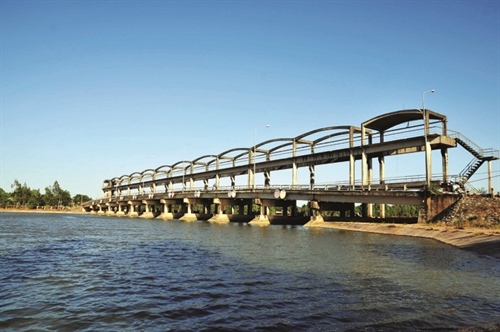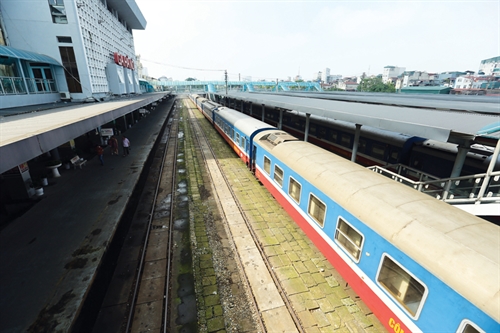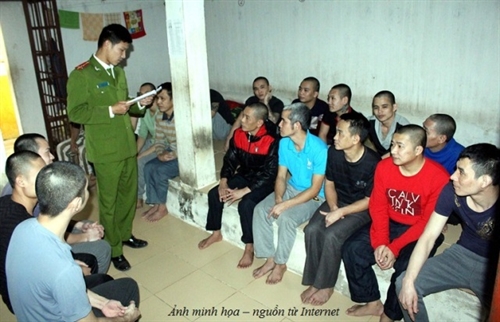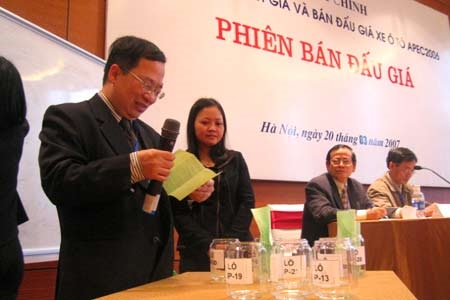With 78 articles arranged in nine chapters, the 2017 Law on State Compensation Liability (the Law) provides the State’s liability to pay compensation to individuals and organizations that have material damage or mental sufferings caused by official duty performers in administrative management, legal proceedings or judgment execution activities. It is expected to create a transparent legal mechanism for the protection of damage sufferers’ lawful rights and interests and the State’s rights and interests.
Compared to its predecessor enacted in 2009, the Law contains numerous new provisions consistent with the 2013 Constitution and relevant codes and laws promulgated in 2015 such as the Civil Code, Penal Code, Criminal Procedure Code, Civil Procedure Code, Law on Administrative Procedures, and Law on Custody and Temporary Detention.
 |
| Nguyen Thanh Chan (middle) was released in 2013 after 10 years in prison__Photo: Internet |
The right to claim compensation
Under Article 5, the following persons have the right to claim state compensation:
- Damage sufferers;
- Heirs of deceased damage sufferers; organizations taking over rights and obligations of damage-suffering organizations that no longer exist;
- At-law representatives of damage sufferers that are required by the Civil Code to have at-law representatives; and,
- Individuals or legal entities authorized by the above persons to exercise the right to claim compensation.
Compensation claimants may request compensation-settling agencies to settle their compensation claims and be informed of results of the settlement. The Law allows a sufferer to initiate a lawsuit to request a court to settle his/her compensation claim when having a document as a basis for claiming compensation in administrative management, civil or criminal proceedings and criminal or civil judgment execution activities.
One among the principles set out in the Law is that a compensation claimant that has requested a compensation-settling agency to settle his/her compensation claim and had his/her claim accepted for settlement may not request another authority to settle such compensation claim.
The statute of limitations for claiming compensation is three years instead of two years under the 2009 Law. Particularly, no statute of limitations is prescribed for requests for honor restoration.
The State will settle a compensation claim after a document used as a basis for claiming compensation is issued or integrate the settlement of a compensation claim in criminal or administrative proceedings at the court for compensation claims in administrative management, civil or administrative proceedings, execution of criminal or civil judgments. The Law is silent about the integration of compensation claim settlement and complaint settlement.
If a damage sufferer is partially at fault in causing the damage, the State will only pay compensation for the damage after subtracting the portion of damage caused by his/her act.
Determination of compensation liability
The state compensation liability will be determined under Article 7. Accordingly, the State will pay compensation when all of the following grounds are available:
• One of the grounds for determining that an illegal act of an official duty performer had caused damage and making a compensation claim.
These grounds include: (i) A document to be used as a basis for claiming compensation and a request for the agency directly managing the damage-causing official duty performer or the court with jurisdiction to settle civil cases to settle the compensation claim; (ii) The court with jurisdiction to settle administrative cases has determined that an illegal act of a sued official duty performer has caused a damage within the scope of state compensation liability and a compensation claim is made before or at the meeting to check the delivery of, access to, and public display of, evidence; and (iii) The court with jurisdiction to settle criminal cases has determined that an illegal act of the defendant being an official duty performer has caused a damage within the scope of state compensation liability in the administrative management, civil or administrative proceedings, execution of criminal or civil judgments, and a compensation claim is made in the course of settlement of a criminal case.
• An actual damage caused to a damage sufferer within the scope of state compensation liability;
• A causal relationship between the actual damage and damage-causing act.
The Law has also revised provisions on the scope of liability, compensable damage, procedures for compensation claim settlement, etc.
The Law will enter into force on July 1 this year.- (VLLF)









